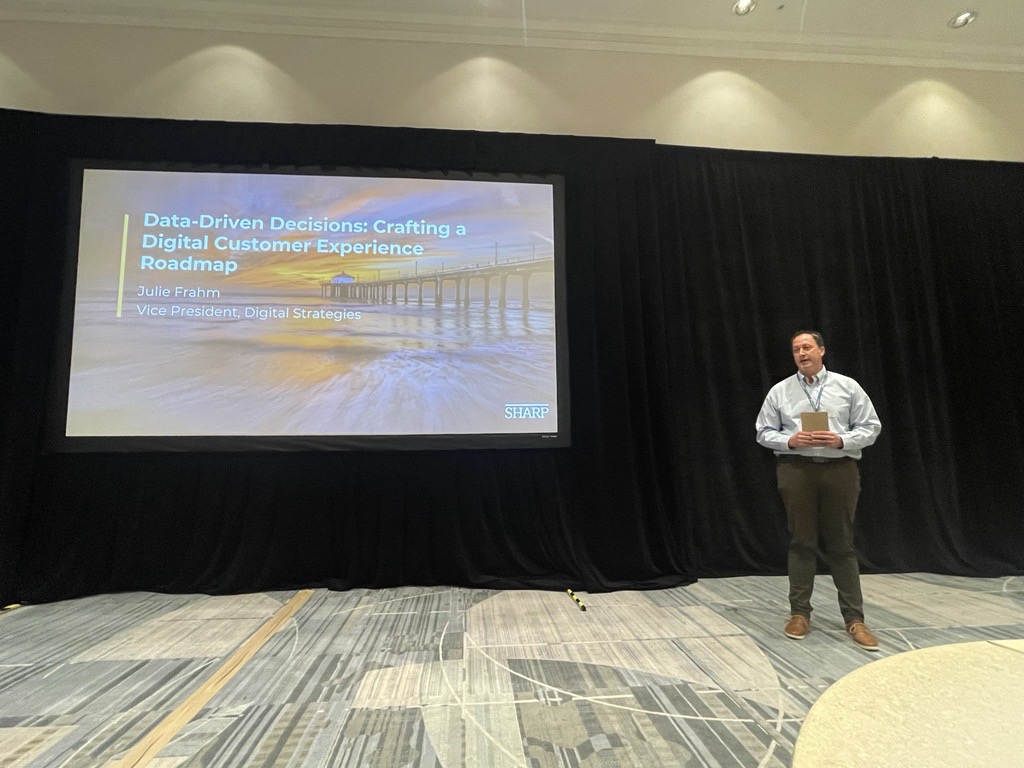As I write this, I’m returning home from the Health Management Academy’s Fall 2024 Consumer Collaborative; departing after consecutive days of 112-degree heat in Phoenix and heading directly into Hurricane Helene as it dissipates over Georgia. Despite the weather and related travel challenges, I love coming to these events because unlike large industry conferences and trade shows, this is an intimate gathering of individuals who are passionate about making the quality, financing, and experience of healthcare better for all. As I process everything that was discussed this week at the Collaborative, I’m finding one very clear theme… Community. Now, maybe that’s just the lens I’m looking through because the core of Panda Health is our community of member health systems. Or perhaps it’s because just a couple of weeks ago we launched our expanded member platform to include peer-to-peer community message boards and online forums. But I’ll share my observations, and let you be the judge.
Community (/kəˈmyo͞onədē/): a feeling of fellowship with others, as a result of sharing common attitudes, interests, and goals.
At a macro level, the entire event is an exercise in community. The Academy brings together individuals from hospitals and health systems across the country, each with similar roles and responsibilities, to share their knowledge, their experience, and their encouragement in support of common goals for their organizations.
Let’s Begin with Politics
The event kicked off with a fireside chat with Jonathan Martin, senior political columnist for Politico. He shared his insider perspective on the presidential race, including the events of this summer that resulted in the unprecedented exit from the race of the Democratic nominee and sitting President. It is very much a story of like-minded individuals coming together around shared attitudes, interests, and goals. He shared the unifying effect that former President Trump has on the Democratic Party, the divisive effect he has on the Republican Party, and how that is shaping the narrative and the race for the presidency. Regardless of your individual political leanings, the ebbs and flows of a political race are absolutely a study on the influences and effects of community.
Listening to Your Community
There was an excellent presentation by Julie Frahm from Sharp Healthcare on using customer feedback and data analytics to truly understand the needs of the communities in which the hospital serves. This information is then used to develop a patient-centric digital engagement roadmap. She shared stories of digital health projects that appeared to technically and financially address a given problem, but when tested with patients, the intended beneficiaries of the work, they universally rejected it for a variety of very practical reasons. Julie reminded us that in this era of digital transformation, it can be easy to get caught up chasing the shiny new objects, and risk losing sight of from whom this work is really being done.
Peer Mentors
In the very next session, Keith Gran and the team from Michigan Medicine shared the tremendous work they’ve done to launch and scale a peer mentoring program. They saw that many of their patients were struggling with their diagnoses, were anxious about their treatment plan, or didn’t know what to expect in the months and years ahead. Evidence has shown that the best way to address that is not to provide the patients with generic education materials or to have their doctor re-explain things from a medical perspective, but rather to connect them with individuals who have walked in their shoes, felt their fears and anxieties, and come out the other side. This establishes that feeling of fellowship with others with whom the patients can more readily relate to and trust. The result has been a measurable reduction in the levels of anxiety and depression in these patients, and increased adherence to their treatment plans.
Real-time Collaboration
There were several other very informative sessions as well, including a collaborative exercise where executives from disparate health systems and digital health solution companies reviewed real-world data pertaining to the patient journey, and ideated solutions to key challenges. My group was tasked with looking at the care delivery process based on which aspects of a patient’s visit are most important in their satisfaction, and which aspects most influenced their decision to select that particular location and/or provider. In that brief exercise the team was able to coalesce around a common goal and develop dozens of practical, yet ambitious solutions that could have a material impact on improving patient experience and patient loyalty. It’s always extremely encouraging for me to see the passion and creativity that so many people are bringing to this industry from various roles within the healthcare ecosystem.
I want to extend my thanks to The Health Management Academy and each of the health system executives who participated for creating a forum that allows us to step out of our day-to-day and refocus a bit on our shared attitudes, interests, and goals. I hope each of you have a sense of community in the work that you are doing every day. But if not, or if you’re simply interested in growing that “feeling of fellowship”, come talk with us at Panda Health. Community is what we do.
